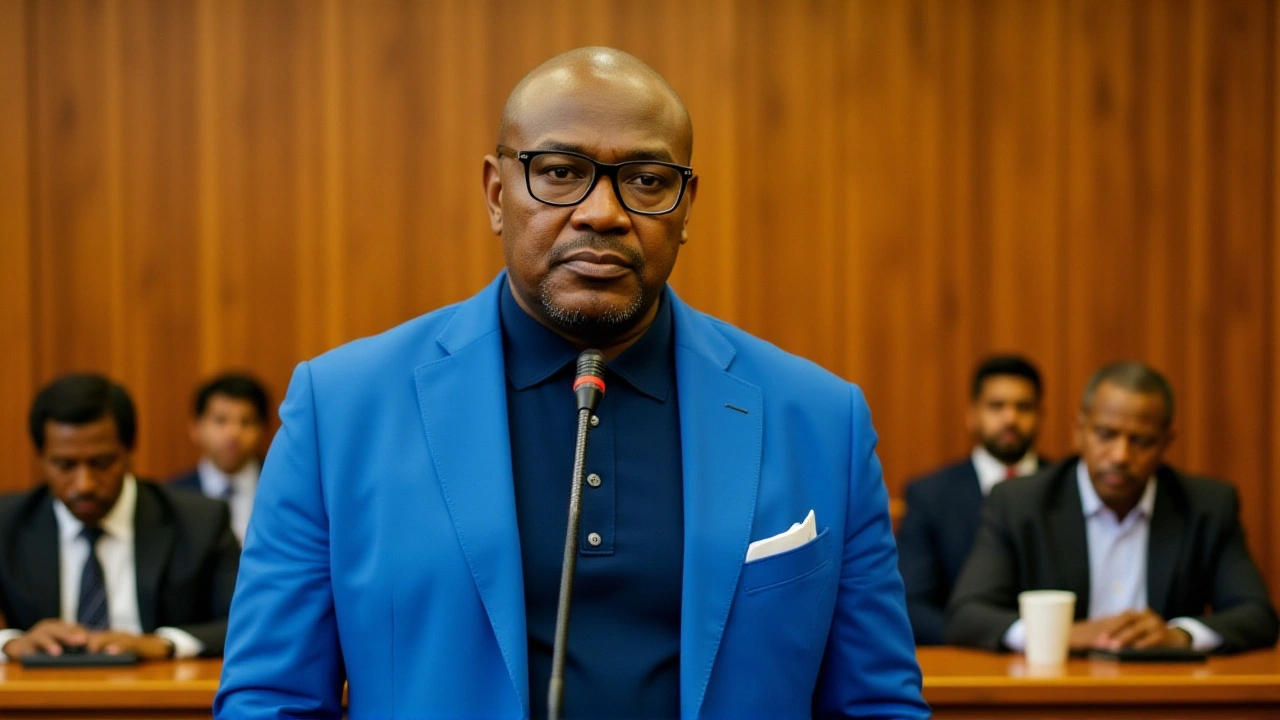Johannesburg High Court
Johannesburg High Court, the main trial court for Gauteng province handling both civil and criminal matters. Also known as JHC, it sets legal precedent, hears appeals from lower courts, and interprets statutes. Its decisions shape everyday life, from business contracts to personal injury claims. Understanding how the JHC works gives you a window into South Africa’s rule of law and the practical side of justice.
How the court fits into the wider system
South African legal system, a hybrid of common law and civil law traditions includes lower magistrates' courts, the High Courts, the Supreme Court of Appeal, and the Constitutional Court. The system’s hierarchy means the JHC sits below the Constitutional Court but above regional magistrates. Jurisdiction is a key attribute: the JHC covers the Gauteng province, handling matters that exceed the monetary limits of lower courts. This structure ensures that complex cases get the expertise they need while still allowing local courts to resolve simpler disputes.
Constitutional Court of South Africa, the highest court for constitutional matters reviews decisions from the Johannesburg High Court when they involve fundamental rights or constitutional interpretation. If the JHC rules on a case that touches on freedom of speech, property rights, or equality, the Constitutional Court can overturn or affirm that ruling. This link creates a check‑and‑balance loop, keeping the High Court accountable and ensuring that national standards are upheld.
High Court judges, experienced legal professionals appointed by the President bring expertise to the bench. Their attributes include legal education, years of practice, and specializations such as commercial law or criminal law. A Judge President leads the Johannesburg division, coordinating case assignments and ensuring procedural fairness. Judges interpret statutes, apply precedent, and sometimes craft new legal principles that later courts will follow.
One practical way to see these entities interact is through a typical civil dispute. A business sues a supplier for breach of contract. The case starts in a magistrate’s court; if the claim exceeds the monetary cap, it moves to the Johannesburg High Court. The High Court judge evaluates the contract, applies statutory rules, and issues a judgment. If the losing party believes the decision violates constitutional rights, they can appeal to the Constitutional Court, which may send the case back for reconsideration or confirm the ruling. This flow shows how jurisdiction, judges, and higher courts work together.
Another common scenario involves criminal matters. Serious offenses like fraud or violent crimes are tried directly in the Johannesburg High Court. The presiding judge oversees the trial, ensures evidence meets legal standards, and hands down a sentence within the statutory range. Appeals on factual or legal errors go to the Supreme Court of Appeal, while constitutional challenges head to the Constitutional Court. The layered process protects both the rights of the accused and public safety.
Beyond courtrooms, the Johannesburg High Court influences everyday policy. Its rulings on land use, environmental regulation, and corporate governance often become reference points for legislators and businesses. Legal scholars cite JHC judgments in textbooks, and media outlets report on landmark decisions that affect thousands. By tracking the court’s output, you stay informed about shifts in South African law that could impact investment, employment, or personal rights.
Now that you have a clear picture of the Johannesburg High Court’s role, its jurisdiction, the judges who sit on it, and its relationship with the Constitutional Court, you’re ready to dive into the articles below. They cover recent rulings, analysis of legal trends, and practical tips for navigating the South African justice system.

KT Molefe Granted R400,000 Bail by Johannesburg High Court, Overturning Earlier Denial
Keabetswe Monyake Oct 11 20Judge Brad Wanless grants Katiso 'KT' Molefe R400,000 bail, overturning an earlier refusal. The businessman faces multiple murder charges, including DJ Sumbody's 2022 killing, sparking intense legal and public reactions.
More Detail